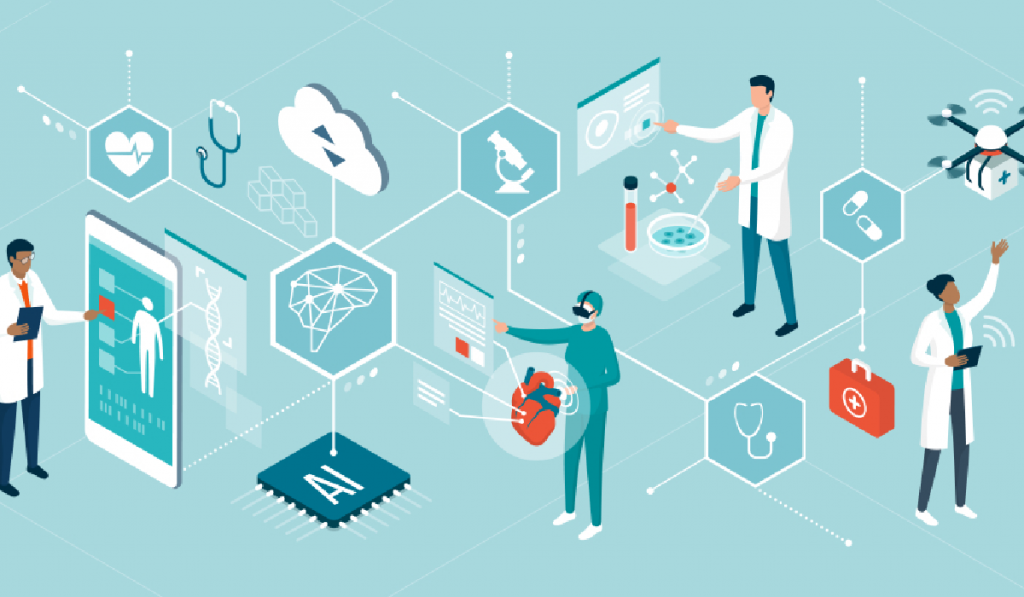Highlights:
- Google LLC recently unveiled Med-PaLM 2, a neural network capable of answering medical test questions, and presented a cloud-based automation toolbox for healthcare businesses.
- According to Google, the AI obtained a score of 85%, 18% higher than a prior-generation neural network dubbed Med-PaLM.
Google LLC recently unveiled Med-PaLM 2, a neural network capable of answering medical test questions, and presented a cloud-based automation toolbox for healthcare businesses.
The innovations were unveiled during the company’s annual The Check Up healthcare event.
Advances in AI
The announcement of Med-PaLM 2 was the first significant highlight of Google’s healthcare event. Med-PaLM 2 is a novel artificial intelligence model developed internally by Google. It can accept medical queries as input and provide comprehensive responses in natural language. Google claims that AI can also elucidate the reasoning behind its answers.
Med-PaLM 2’s accuracy was evaluated by having it answer a succession of questions like the United States Medical Licensing Examination. According to Google, the AI scored 85%, 18% higher than a prior-generation neural network dubbed Med-PaLM. According to the company, the efficacy of Med-PaLM 2 “far surpasses” comparable AI models from other companies.
In the coming weeks, Google’s cloud division intends to make Med-PaLM 2 available to a limited number of customers. According to the search behemoth, the objective is to determine how the model could be implemented in the medical field.
Aashima Gupta and Amy Waldron, Google Cloud executives, stated that Google hopes to “understand how Med-PaLM 2 might be used to facilitate rich, informative discussions, answer complex medical questions, and find insights in complicated and unstructured medical texts. They might also explore its utility to help draft short- and long-form responses and summarize documentation and insights from internal data sets and bodies of scientific knowledge.”
Med-PaLM 2 is one of various AI models developed by Google to assist medical professionals in their work. It collaborates with numerous healthcare organizations to improve its research in this field. In addition to announcing Med-PaLM 2, the company also announced four new healthcare partnerships.
The first collaboration is with an “AI-based organization” directed by the non-profit organization Right to Care. The focus of the collaboration is to make AI-powered tuberculosis screenings broadly accessible in Sub-Saharan Africa. Google reports that its partners have pledged to donate 100,000 complimentary screenings.
The three additional healthcare AI partnerships are with Kenyan non-profit Jacaranda Health, Chang Gung Memorial Hospital of Taiwan, and Mayo Clinic. The previous two collaborations focus on interpreting ultrasound images using machine learning. The partnership between Google and the Mayo Clinic seeks to develop an artificial intelligence (AI) model that can help physicians plan radiotherapy treatments faster.
The New Claims Acceleration Suite
In addition to its new partnerships and Med-PaLM 2 model, Google Cloud announced the Claims Acceleration Suite. It reduces administrative labor for healthcare organizations via the use of AI. The offering utilizes multiple existing Google Cloud services, including the Document AI API for document information extraction.
The Claims Acceleration Suite is intended to accelerate two frequent healthcare administration tasks. The first is claims processing, while the second is a prior authorization for health insurance. At launch, the offering only supports the second use case.
Health insurance prior authorization evaluates the medical necessity of a treatment plan. Examining medical records and other patient information that is frequently dispersed across multiple documents is required for the evaluation. According to Google, preparing this data for processing requires substantial manual labor.
The Claims Acceleration Suite is intended to accelerate the activity. It can transform medical data in unstructured files, such as PDFs, into a structured format more amenable to processing. In addition, the offering provides a search tool for medical professionals to peruse the collected data.





























































